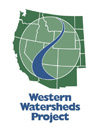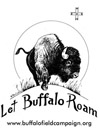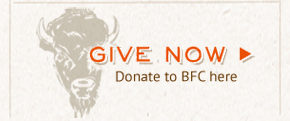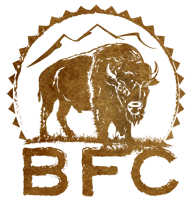For Immediate Release
January 12, 2016
Contacts:
Dr. Michael Connor, Western Watersheds Project, 818-345-0425
Daniel Brister, Executive Director, Buffalo Field Campaign, 406-726-5555
Michael Harris, Legal Director, Friends of Animals Wildlife Law Program, 720-949-7791
Montana: Today, the U.S. Fish and Wildlife Service (USFWS) denied Endangered Species Act protection for the iconic Yellowstone Bison. The agency’s decision comes 14 months after Western Watersheds Project and Buffalo Field Campaign petitioned to list these bison as an endangered or threatened species. The groups sought federal protection for the Yellowstone bison because these unique bison herds are harmed by inadequate federal and state management and other threats. In the finding, the USFWS now agrees that the Yellowstone bison are a distinct population of bison, reversing its 2011 position.
“If buffalo are to recover as a wild species in their native ecosystem, science must prevail over politics,” said BFC Executive Director Dan Brister. “The best available science indicates a listing under the Endangered Species Act is necessary to ensure the survival of this iconic species.”
“Friends of Animals is committed to protecting the last wild bison in America. We are disappointed in USFWS’s finding and suspect that the decision was improperly influenced by the interests of private ranchers in the area. We are reviewing the agency’s decision and plan to take further legal action if necessary,” stated attorney Michael Harris of Friends of Animals Wildlife Law Program.
“We petitioned the USFWS to list the Yellowstone bison because of clear management inadequacies and growing threats to this key population of wild bison. The USFWS decision is disappointing because protection under the Endangered Species Act is the only way to counter the management inadequacies and growing threats,” stated Michael Connor of Western Watersheds Project.
The groups’ petition catalogues the many threats that Yellowstone bison face. Specific threats include: extirpation from their range to facilitate livestock grazing, livestock diseases and disease management practices by the government, overutilization, trapping for slaughter, hunting, ecological and genomic extinction due to inadequate management, and climate change.
Federal and state policies and management practices threaten rather than protect the Yellowstone bison and their habitat. Since 2000, more than 4,000 bison have been captured from their native habitat in Yellowstone National Park and slaughtered. The Forest Service issues livestock grazing permits in bison habitat. The states of Montana, Idaho, and Wyoming forcefully remove or kill bison migrating beyond the National Park borders.
Once numbering tens of millions, there were fewer than 25 wild bison remaining in the remote interior of Pelican Valley in Yellowstone National Park at the turn of the 20th Century. The 1894 Lacey Act, the first federal law specifically safeguarding bison, prevented the extinction of these few survivors.
The agency’s justification can be found online at:
Endangered Species Act 90 Day Finding (PDF)
The petition to list Yellowstone bison is available online: Endangered Species Act Petition (PDF)
 Western Watersheds Project works to protect and restore wildlife habitats on the nation's public lands through education, scientific study, public policy initiatives, and litigation. Western Watersheds Project has offices throughout the west including Montana, Wyoming, Idaho, Arizona, Oregon, and California.
Western Watersheds Project works to protect and restore wildlife habitats on the nation's public lands through education, scientific study, public policy initiatives, and litigation. Western Watersheds Project has offices throughout the west including Montana, Wyoming, Idaho, Arizona, Oregon, and California.
 Buffalo Field Campaign is a regional conservation organization with offices in Montana. Buffalo Field Campaign was founded in 1997 to protect the natural habitat of wild migratory buffalo and native wildlife, to stop the slaughter and harassment of America’s last wild buffalo as well as to advocate for their lasting protection, and to work with people of all Nations to honor the sacredness of wild buffalo.
Buffalo Field Campaign is a regional conservation organization with offices in Montana. Buffalo Field Campaign was founded in 1997 to protect the natural habitat of wild migratory buffalo and native wildlife, to stop the slaughter and harassment of America’s last wild buffalo as well as to advocate for their lasting protection, and to work with people of all Nations to honor the sacredness of wild buffalo.
 Friends of Animals is an international animal protection organization founded in 1957 that advocates for the rights of animals, free-living and domestic, around the world.
Friends of Animals is an international animal protection organization founded in 1957 that advocates for the rights of animals, free-living and domestic, around the world.
The petition is available online HERE.







